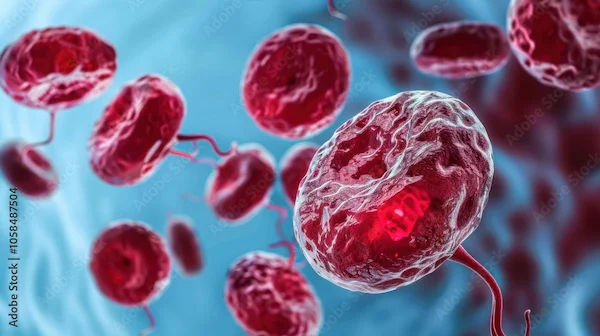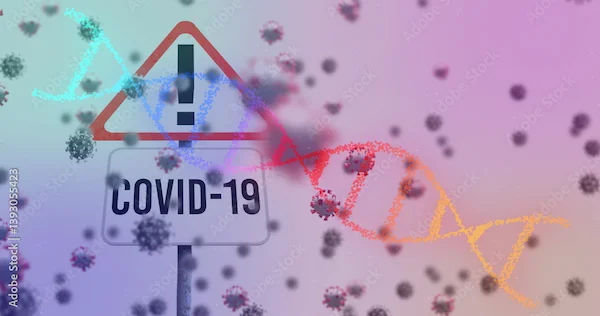Understanding Ringworm: Symptoms and Treatment
What is a ringworm? Learn to identify its symptoms, understand its causes, and explore effective over-the-counter and prescription treatment options for this common fungal infection.


Ringworm is a common skin infection that can affect anyone, regardless of age or lifestyle. Despite its name, it has nothing to do with actual worms—it’s caused by a fungus! If you or someone you know is dealing with an itchy, circular rash, this guide will help you understand what ringworm is, its symptoms, causes, and how to treat it effectively.
What Is a Ringworm?
Ringworm, also known as tinea corporis, is a contagious fungal infection that affects the skin, scalp, or nails. It gets its name from the ringlike red rash it often creates. The fungi responsible for ringworm thrive in warm, moist environments and can spread through direct contact with infected people, animals, or surfaces.
Common Symptoms of Ringworm
The most noticeable sign of ringworm is a red, circular rash with raised edges and clearer skin in the center. However, symptoms can vary depending on the affected area:
Skin (Tinea Corporis):
- Red, scaly, itchy patches
- Rings that may expand over time
- Blisters or oozing in severe cases
Scalp (Tinea Capitis):
- Patchy hair loss
- Scaly, itchy scalp
- Swollen lymph nodes (in some cases)
Feet (Athlete’s Foot/Tinea Pedis):
- Peeling, cracking skin between toes
- Itching and burning sensation
Groin (Jock Itch/Tinea Cruris):
- Red, itchy rash in the inner thighs or groin area
If you notice any of these symptoms, it’s best to consult a doctor for proper diagnosis and treatment.
What Causes Ringworm?
Ringworm is caused by dermatophytes, a group of fungi that feed on keratin (a protein found in skin, hair, and nails). You can get infected through:
- Direct Skin Contact: Touching an infected person or animal (commonly cats, dogs, or farm animals).
- Contaminated Objects: Sharing towels, clothing, or combs with someone who has ringworm.
- Damp Environments: Walking barefoot in public showers, pools, or gyms.
- Weakened Immunity: People with diabetes or weakened immune systems are more prone to infections.
How Is Ringworm Diagnosed?
A doctor can usually diagnose ringworm by examining the rash. In some cases, they may take a small skin scraping to confirm the presence of fungus under a microscope.
Effective Treatment Options
The good news is that ringworm is treatable! Depending on the severity, treatment may include:
1. OvertheCounter (OTC) Antifungal Creams
- Clotrimazole, Miconazole, or Terbinafine creams can help clear mild infections.
- Apply as directed (usually twice daily for 24 weeks).
2. Prescription Medications
- For severe or persistent infections, doctors may prescribe oral antifungals like Terbinafine or Griseofulvin.
- Antifungal shampoos (for scalp infections).
3. Home Care & Prevention Tips
- Keep the area clean and dry – Fungi thrive in moisture.
- Avoid scratching – It can spread the infection.
- Wash clothes, towels, and bedding in hot water.
Don’t share personal items like razors, combs, or socks.
- Wear breathable fabrics (cotton) to reduce sweating.
Consult a General Physician For The Best Advice
When to See a Doctor?
While mild ringworm can be treated at home, consult a doctor if:
- The rash spreads or worsens after 2 weeks of OTC treatment.
- You develop fever, pus filled sores, or excessive swelling.
- The infection affects the scalp or nails (requires prescription treatment).
Preventing Ringworm
Prevention is always better than cure! Follow these steps to avoid ringworm:
- Practice good hygiene – Wash hands regularly.
- Dry skin thoroughly after bathing, especially between toes.
- Avoid walking barefoot in public showers or pools.
- Check pets for bald patches – Animals can carry ringworm.
Final Thoughts
Ringworm may be uncomfortable, but it’s not dangerous and can be easily treated with proper care. If you suspect you have ringworm, start treatment early and follow hygiene measures to prevent spreading it.
Need Expert Advice?
If you’re unsure about your symptoms or need medical guidance, Apollo 24|7 offers easy online consultations with dermatologists. You can also book lab tests to confirm fungal infections.
Call 1860-500-1066 to schedule an appointment today!
Stay informed, stay healthy! Consult a General Physician
Consult a General Physician

Dr. Mohamed Azeem
General Physician/ Internal Medicine Specialist
2 Years • MBBS,MD(Internal Medicine) CCEBDM
Karaikudi
Apollo Hospitals Karaikudi, Karaikudi

Dr. Sandhya Chandel
General Physician/ Internal Medicine Specialist
16 Years • MBBS, MD (Int. Med.), IDCCM
Bilaspur
Apollo Hospitals Seepat Road, Bilaspur
(125+ Patients)

Dr Syed Mateen Pasha
General Physician
2 Years • MBBS
Bengaluru
PRESTIGE SHANTHINIKETAN - SOCIETY CLINIC, Bengaluru

Dr. Anand Ravi
General Physician
2 Years • MBBS
Bengaluru
PRESTIGE SHANTHINIKETAN - SOCIETY CLINIC, Bengaluru

Dr. Harshendra Jaiswal
General Physician/ Internal Medicine Specialist
12 Years • MBBS , MD (General medicine)
Kolkata
108 DHANA DHANVANTARI Clinic, Kolkata
(25+ Patients)
Consult a General Physician For The Best Advice

Dr. Mohamed Azeem
General Physician/ Internal Medicine Specialist
2 Years • MBBS,MD(Internal Medicine) CCEBDM
Karaikudi
Apollo Hospitals Karaikudi, Karaikudi

Dr. Sandhya Chandel
General Physician/ Internal Medicine Specialist
16 Years • MBBS, MD (Int. Med.), IDCCM
Bilaspur
Apollo Hospitals Seepat Road, Bilaspur
(125+ Patients)

Dr Syed Mateen Pasha
General Physician
2 Years • MBBS
Bengaluru
PRESTIGE SHANTHINIKETAN - SOCIETY CLINIC, Bengaluru

Dr. Anand Ravi
General Physician
2 Years • MBBS
Bengaluru
PRESTIGE SHANTHINIKETAN - SOCIETY CLINIC, Bengaluru

Dr. Harshendra Jaiswal
General Physician/ Internal Medicine Specialist
12 Years • MBBS , MD (General medicine)
Kolkata
108 DHANA DHANVANTARI Clinic, Kolkata
(25+ Patients)




